Prof Gabrys delivers a keynote talk at the KES 2014 international conference, receives the Outstanding Contribution to the KES International organisation award and appears in two popular Polish TV’s “Panorama” news programmes.
 It was a very nice and productive trip to a beautiful Polish seaside city of Gdynia where the 18th International Conference on Knowledge-Based and Intelligent Information & Engineering Systems took place between the 14th and 17th of September 20014.
It was a very nice and productive trip to a beautiful Polish seaside city of Gdynia where the 18th International Conference on Knowledge-Based and Intelligent Information & Engineering Systems took place between the 14th and 17th of September 20014.
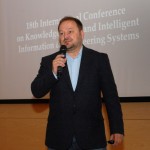 I thought that I was only going to deliver a keynote talk which in itself was a nice recognition of the ongoing work that we are doing in the areas of robust adaptive predictive modelling and data science and a great opportunity to talk to over 200 delegates from over 30 countries attending the conference but as it turned out there were some other attractions awaiting.
I thought that I was only going to deliver a keynote talk which in itself was a nice recognition of the ongoing work that we are doing in the areas of robust adaptive predictive modelling and data science and a great opportunity to talk to over 200 delegates from over 30 countries attending the conference but as it turned out there were some other attractions awaiting.
This very well organised conference attracted the attention of the Polish TV and the topics of data science, artificial intelligence or big data, all in the focus of our Data Science Institute at BU, were judged to be of considerable interest to the general public. Not only I had an opportunity to talk briefly about the conference topics during the TV coverage at the conference venue (which was aired in the evening news programme on the 15th of Sep) but together with one of the local organisers we were invited to the “Panorama” programme studio to take part in the morning news programme the following day (aired on the 16th of Sep). The interaction with the journalists and the production teams brought to my attention how important is our role in informing and educating about this very dynamically changing field and related technological innovations which have already had such a huge impact on our lives and will play even bigger role in the near future.
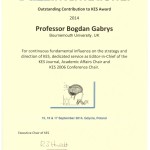 So whatever next, I thought. Well, there was another surprise around the corner. Though I have been involved in the KES International for a number of years it has come as a very pleasant surprise and an honour to receive the Outstanding Contribution to KES International award during the conference dinner.
So whatever next, I thought. Well, there was another surprise around the corner. Though I have been involved in the KES International for a number of years it has come as a very pleasant surprise and an honour to receive the Outstanding Contribution to KES International award during the conference dinner.
An icing on the cake, you could say. 🙂


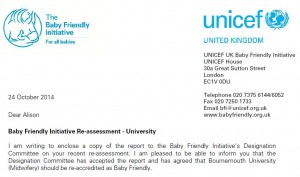


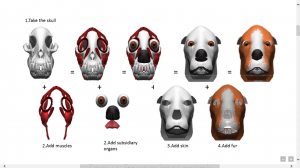
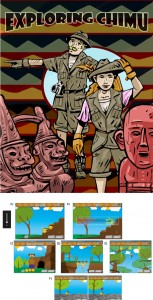

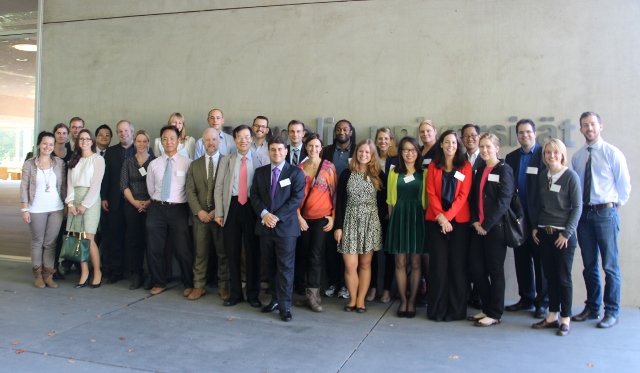
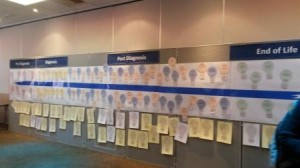
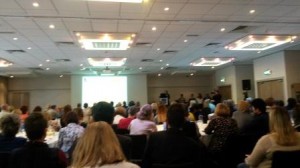













 SPROUT: From Sustainable Research to Sustainable Research Lives
SPROUT: From Sustainable Research to Sustainable Research Lives BRIAN upgrade and new look
BRIAN upgrade and new look Seeing the fruits of your labour in Bangladesh
Seeing the fruits of your labour in Bangladesh Exploring Embodied Research: Body Map Storytelling Workshop & Research Seminar
Exploring Embodied Research: Body Map Storytelling Workshop & Research Seminar Marking a Milestone: The Swash Channel Wreck Book Launch
Marking a Milestone: The Swash Channel Wreck Book Launch ECR Funding Open Call: Research Culture & Community Grant – Application Deadline Friday 12 December
ECR Funding Open Call: Research Culture & Community Grant – Application Deadline Friday 12 December MSCA Postdoctoral Fellowships 2025 Call
MSCA Postdoctoral Fellowships 2025 Call ERC Advanced Grant 2025 Webinar
ERC Advanced Grant 2025 Webinar Update on UKRO services
Update on UKRO services European research project exploring use of ‘virtual twins’ to better manage metabolic associated fatty liver disease
European research project exploring use of ‘virtual twins’ to better manage metabolic associated fatty liver disease